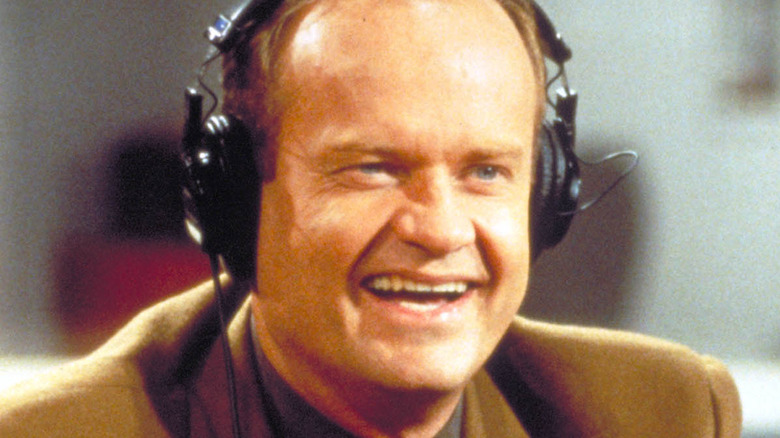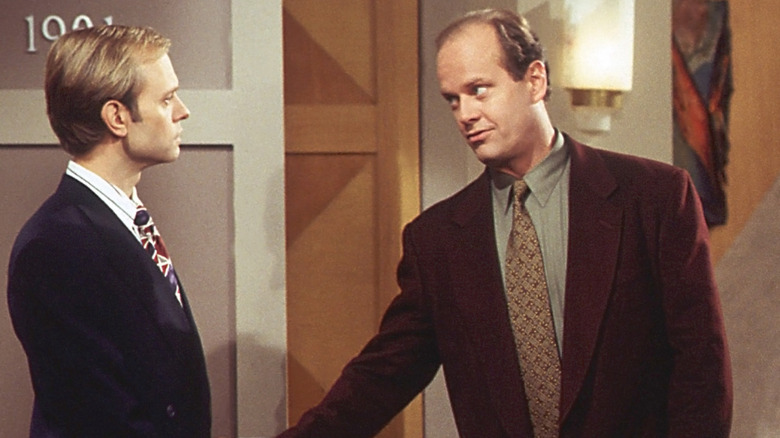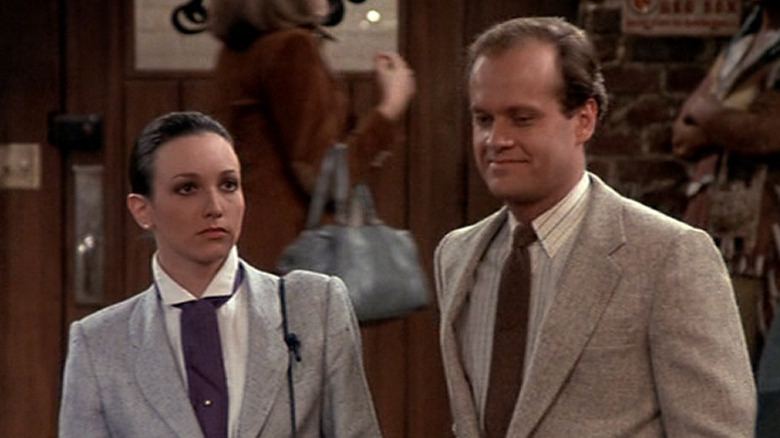The Frasier Theory That Changes Everything
If it's one thing fans truly love when it comes to television and film, it's the allure of a good theory. Fan speculation and theorizing is easily as old as fandom itself, whether it be theories about "Star Trek," "Star Wars," or the Marvel Cinematic Universe. Fans love to sit down and craft elaborate theories that connect events and people in a given piece of media in ways you might not expect.
Sometimes, a well-crafted fan theory can link together entire franchises (see: all of the Pixar films existing within the same universe), others can make for a fun piece of trivia, while some can take something like a beloved long-running sitcom and turn it into a poignant tragedy or even a grim and gritty crime drama. So it is with the strange case of "Frasier," a sitcom that's undergone a surge of speculation that's turned perspectives on the beloved series upside down.
How does Frasier make his money?
In a recent Metro article, fans of the long-running NBC sitcom offered a number of intriguing theories as to just how the former patron of Cheers could afford his lavish lifestyle in downtown Seattle. Given that the good doctor lives in a penthouse apartment and enjoys the finest in clothes, food, and drink, fans began to speculate on just how Dr. Frasier Crane could afford all the extravagance his lifestyle entailed.
The more plausible fan theories suggest that Frasier's life is exactly as it seems — the good doctor is a well-paid host of a popular radio talk show with a wide variety of endorsement deals and a killer agent. But gradually, the theorems began to move into more outlandish territory, from the Crane family being a Seattle crime dynasty and Frasier's brother Niles being a well-tailored hitman, to Frasier supplementing his income with his father Martin's police pension and having Daphne, Martin's live-in caregiver and British expatriate, as a source of cheap and undocumented labor.
A tragic take on Frasier Crane
As intriguing (and occasionally very dark) as all the theories rounded up by Metro might be, easily the most tragic is the one posited by John Preston, a professor of sociology who put forth on Twitter the idea that Frasier never left Boston. According to this take, the spin-off was all in Frasier's mind. Divorced from ex-wife Lilith and estranged from his family, he's became a drunken bum living in the alleyway behind Cheers, dreaming of the life he might have had in Seattle, with the characters of "Frasier" being figments of his tormented imagination. Rather than face the reality of his tragic existence, he's retreated into a fantasy world where he's rich, has a strong connection with his father and brother, and has earned the respect and acclaim he felt was his due during his time at Cheers.
While these theories are simple exercises in whimsy to answer the question of a fictional character's finances, the idea that the beloved sitcom that is "Frasier" is really just a lonely man's dream of his perfect life is a tragedy that could stand shoulder to shoulder with "WandaVision" in terms of bleakness. Thankfully, it's all just a theory.


